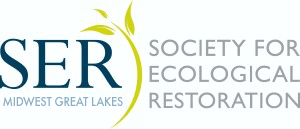Student Grant Awards Deadline Fast Approaching
Application Deadline: February 21, 2020
The Student Grant Program offers 2 awards: a Research Grant supports student involvement in research in ecological restoration; an Implementation Grant supports student involvement in the implementation or management of an ecological restoration project. The Chapter will award two grants (one Research, one Implementation) of up to $2,000 each. The Research Grant will be awarded to an eligible student for research supplies, travel, equipment and other needs. The Implementation Grant will be awarded to an eligible student, student group, or student-oriented group for supplies, travel, equipment, outreach materials, and other items to support implementation of restoration practices. Grant funds cannot be used for travel to the SER MWGL annual meeting.
The award winners will be announced on the chapter blog (https://restorationnewsmidwest.wordpress.com) and the recipients will be expected to present an oral or poster presentation on their work at the 2021 Annual Chapter Meeting. Award winners will receive waived annual meeting registration (limit 1 per award) for the 2021 Annual Chapter Meeting.
Application:
- Eligibility – All undergraduate and graduate students who are members of the SER Midwest-Great Lakes Chapter* and attend institutions of higher education within the regional boundaries of the SER MWGL Chapter. The proposed work must occur within the SER MWGL Chapter regional boundaries.
- Applicants should clearly state the grant award type (Research or Implementation) for which they are applying.
- Proposal (3pgs) – Proposals should not exceed 3 pages (no smaller than 11pt font with 1” margins), including all text,figures and literature cited. Proposals must clearly describe how the funds will be used, the need for the funds, and how the proposed activities support the Chapter’s mission. Proposals should include the following:
Research Grant
- Introduction – Provide scientific justification and significance of the research and specify research questions, objectives or hypotheses.
- Methods – Detail the experimental design, site locations, data collection methods, and statistical analysis.
- Anticipated Results & Discussion – Explain anticipated results and potential interpretation and address how the results can be applied to further our understanding of the science and practice of ecological restoration.
- Literature Cited – Follow the format of Restoration Ecology.
Implementation Grant
- Introduction – Provide an overview of the restoration project and the specific objectives for how the planned activities will be implemented with the requested funds. This section should also describe the goals, history, composition, and past activities of the associated student group, if applicable.
- Planned Activities – Describe the planned activities and restoration practices that will be implemented with the requested funds.
For more information and to apply click here: https://6zvjw1i9d632in9ii1izgap9-wpengine.netdna-ssl.com/midwestgreatlakes/files/2020/01/SER-MWGL-2020-Student-Awards-RFP.pdf
